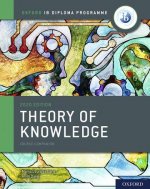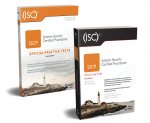
Code: 08138641
Amnesty, Reconciliation and Reintegration
by Jeffrey H Powell
The Rwandan Genocide of 1994 was a cataclysmic international event. Because of the devastation suffered during the genocide, a focused effort at repairing the social fabric of the nation had to take place. The case shows how Rwand ... more
- Language:
 English
English - Binding: Paperback
- Number of pages: 62
Publisher: Biblioscholar, 2012
- More about this

You might also like
-

Inner Impression/Outer Expression
29.21 € -

Elfin Barrier
22.56 € -

Reflections
15.41 € -18 % -

Hell is being Republican in Virginia
40.19 € -

Collection of Tracts and Treatises Illustrative of the Natural History, Antiquities, and the Political and Social State of Ireland, at Various Periods
32.64 € -

Girl vs Ghost
12.48 € -

Spiking Neuron Models
109.61 €
Give this book as a present today
- Order book and choose Gift Order.
- We will send you book gift voucher at once. You can give it out to anyone.
- Book will be send to donee, nothing more to care about.
More about Amnesty, Reconciliation and Reintegration
You get 150 loyalty points
 Book synopsis
Book synopsis
The Rwandan Genocide of 1994 was a cataclysmic international event. Because of the devastation suffered during the genocide, a focused effort at repairing the social fabric of the nation had to take place. The case shows how Rwanda overcame the negative impacts of the international community and implemented two aspects of the amnesty, reconciliation, and reintegration process (AR2) by developing interesting and innovative reconciliation and reintegration policies. Throughout the case there are four issues that prove integral to the AR2 process; the anthropology of Rwanda, its colonial history, the international communities actions, and the Rwandan Patriotic Fronts policies that returned the country to its cultural norms. Rwandan anthropology, cultural understanding, and colonial history play a vital role in forming the foundation for the genocide. These three factors set the conditions for a genocide that saw between 800000 and 1 million people killed in less than four months. The basis for the killing was a perceived and accentuated anthropological difference derived from tribal affiliations of Hutu and Tutsi. That difference gained its accentuation through colonial rule as it was used to divide and subjugate portions of the population, primarily Tutsi subjugation of Hutus. After Rwandan independence created a juxtaposed relationship, the Hutus gained and harshly exerted power over the Tutsis. Those relationships lead to years of internal strife. Multiple occasions of mass killings, refugee flow to neighboring countries, and the eventual evolution of a revolutionary army culminated in a civil war that began in 1990 between the Hutu-lead government and the Rwandan Patriotic Front that was based in Uganda. The culmination of the civil war was the genocide. A genocide that the international community was slow to react to, failed to stop, and hindered its recovery.
 Book details
Book details
Book category Books in English Society & social sciences Education
59.84 €
- Full title: Amnesty, Reconciliation and Reintegration
- Subtitle: The International Community and the Rwandan Process
- Author: Jeffrey H Powell
- Language:
 English
English - Binding: Paperback
- Number of pages: 62
- EAN: 9781249457893
- ISBN: 9781249457893
- ID: 08138641
- Publisher: Biblioscholar
- Weight: 127 g
- Dimensions: 246 × 189 × 3 mm
- Date of publishing: 21. September 2012
Trending among others
-

Cambridge IGCSE (R) & O Level Complete Physics: Student Book Fourth Edition
42.01 € -

Cambridge IGCSE (R) & O Level Complete Biology: Student Book Fourth Edition
42.01 € -

Cambridge IGCSE (R) & O Level Complete Chemistry: Student Book Fourth Edition
50.97 € -

Oxford IB Diploma Programme: IB Economics Course Book
62.26 € -

Oxford IB Diploma Programme: IB Theory of Knowledge Course Book
58.03 € -

Oxford International Primary Science Second Edition: Workbook 4
15 € -

Business Partner B1 Workbook
17.62 € -7 % -

CompTIA Security+ Review Guide - Exam SY0-601
24.78 € -24 % -

AQA French A Level Year 1 and AS
50.37 € -

Cambridge IGCSE (R) & O Level Complete Biology: Print and Enhanced Online Student Book Pack Fourth Edition
61.15 € -

geog.2 Workbook
11.48 € -6 % -

Oxford IB Study Guides: Economics for the IB Diploma
47.75 € -

Teach Reading With Orton-gillingham
18.73 € -10 % -

KS3 Maths 10-Minute Weekly Workouts - Year 7
8.05 € -8 % -

Blue Book of Grammar and Punctuation: An Easy- to-Use Guide with Clear Rules, Real-World Examples , and Reproducible Quizzes, Twelfth Edition
15.10 € -28 % -

Business Partner B1+ Workbook
16.82 € -3 % -

Powerful Teaching: Unleash the Science of Learning
26.19 € -26 % -

Business Partner B2 Workbook
16.82 € -3 % -

Embodied Teen
21.65 € -16 % -

(ISC) SSCP SG & SSCP Practice Test Kit, 3e
65.08 € -28 % -

Growth Mindset Classroom-ready Resource Book
16.21 € -28 % -

AQA A Level Biology Revision Guide
25.58 € -5 % -

UKCAT For Dummies
23.16 € -28 % -

Oxford International Primary Maths Second Edition: Practice Book 1
12.18 € -

Oxford International Primary Science Second Edition: Student Book 1
26.79 € -

Donny's Unauthorized Technical Guide to Harley Davidson 1936 to Present
47.95 € -16 % -

OET Speaking for Nurses Book 2
11.58 € -2 % -

Oxford International Primary Maths Second Edition: Practice Book 2
12.18 € -

Edexcel International GCSE Chemistry Student Book Second Edition
31.63 € -14 % -

Cambridge IGCSE (R) & O Level Complete Physics: Print and Enhanced Online Student Book Pack Fourth Edition
62.96 € -

OET Speaking For Nurses Book 1
12.79 € -

Walk Your Talk; Tools and Theories To Share Nonviolent Communication
29.31 € -

Oxford International Primary Maths Second Edition: Practice Book 3
13.59 € -

Social Skills Activities for Secondary Students wi th Special Needs, Third Edition
26.39 € -21 % -

geog.1 5th edition Workbook Answer Book
56.41 € -

AQA GCSE German Foundation Practice Papers
15.30 € -

New KS2 English Year 5 Foundation Grammar, Punctuation & Spelling Targeted Question Book w/Answers
8.96 € -5 % -

Cambridge IGCSE (R) & O Level Complete Chemistry: Print and Enhanced Online Student Book Pack Fourth Edition
62.96 € -

Making Escape Rooms for Educational Purposes
18.73 € -

New KS2 English Year 4 Foundation Grammar, Punctuation & Spelling Targeted Question Book w/Answers
8.96 € -5 % -

240 Vocabulary Words Kids Need to Know: Grade 3
11.78 € -17 % -

Education in the New Age
12.89 € -

Oxford IB Diploma Programme: Oxford IB Diploma Programme: IB Mathematics: applications and interpretation Standard Level Enhanced Online Course Book
95.20 € -

Oxford International Primary Maths Second Edition: Practice Book 5
16.11 € -

OET Preparation
9.66 € -

Speed and Accuracy: Multiplication
8.55 € -

ESL/ELL Teacher's Survival Guide: Ready-to-Use Strategies, Tools, and Activities for Teaching En glish Language Learners of All Levels, 2nd Edition
29.71 € -21 % -

KS3 Maths 10-Minute Weekly Workouts - Year 8
8.05 € -8 % -

Speed and Accuracy: Division
8.55 €
Collection points Bratislava a 2642 dalších
Copyright ©2008-24 najlacnejsie-knihy.sk All rights reservedPrivacyCookies



 15549 collection points
15549 collection points Delivery 2.99 €
Delivery 2.99 € 02/210 210 99 (8-15.30h)
02/210 210 99 (8-15.30h)